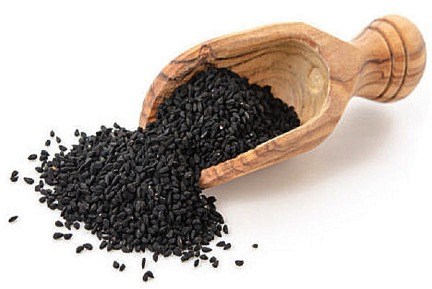Health
Black Seed, A Remedy For All Diseases

RESEARCH
Black seed is a plant which humans have used to make medicine for over 2000 years, the Premier writes on this immensely powerful seed also called nigella sativa. You may or may not have heard of Black seed (nigella sativa) before, but this humble, but immensely powerful seed, kills MRSA, stimulates regeneration of the dying beta cells within the diabetic’s pancreas, eliminates harmful bacteria to regenerating the body’s cells and tissues but, yet only few people even know it exists. Mounting evidence indicates this seed is a powerful healer. Nigella-sativa goes by many names, including black caraway, black sesame, Roman coriander, and black cumin, to name a few. But no matter what you call it, these seeds are loaded with health benefits that we are only beginning to understand, from eliminating harmful bacteria to regenerating the body’s cells and tissues, here are awesome research-backed health benefits of black cumin, but these benefits of nigella sativa are truly only the tip of the iceberg as research is still ongoing. The health conditions that may be benefited from the use of the herb, including over 20 distinct pharmacological actions it expresses, such as: analgesic (Pain-Killing), anti-Bacterial, anti-inflammatory, anti-ulcer, anti-cholinergic, anti-fungal, ant-hypertensive, antioxidant, antispasmodic, antiviral, bronchodilator, gluconeogenesis inhibitor (anti-diabetic), hepatoprotective (liver protecting), hypotensive, insulin sensitizing, interferon inducer, leukotriene antagonist, renoprotective (kidney protecting), tumor necrosis factor alpha inhibitor. Asthma: Research shows that taking black seed by mouth along with asthma medicines can improve coughing, wheezing, and lung function in some people with asthma. But it seems to work only in people with very low lung function before treatment. And it does not seem to work as well as the drugs theophylline or salbutamol. Diabetes: Early research shows that taking black seed powder can improve blood sugar levels in people with diabetes. Black seed might also improve levels of cholesterol in people with diabetes. Doses of 2 grams daily seem to be needed for any benefit. High Blood Pressure: Research shows that taking black seed by mouth might reduce blood pressure by a small amount. To Improve Sperm Function: Research shows that taking black seed oil increases the number of sperm and how quickly they move in men with infertility. Breast pain (mastalgia): Research shows that applying a gel containing black seed oil to the breasts during the menstrual cycle reduces pain in women with breast pain. Breast Cancer – A few studies have linked a thymoquinone extract from nigella sativa to reduced breast cancer tumor growth and increased apoptosis (cell death) in breast cancer cells. Epilepsy – A recent study found black seed to be effective at reducing the frequency of seizures in children who resisted conventional treatment. Black seed indeed has anti-convulsive properties. Leukemia – As it’s been shown to do with other types of cancer, black seed compound thymoquinone has also been shown to induce apoptosis in leukemia cells. Brain Damage from Lead – A study published in Experimental and Toxicologic Pathology indicates black seed is able to dampen and reverse damage to the brain sparked by lead toxicity. Oral Cancer – Research indicates thymoquinone from nigella sativa is able to induce cell apoptosis in oral cancer cells. Colon Cancer – In cell studies, black seed has been found to have anti-cancer properties, inhibiting the growth of colon cancer cells specifically. In one animal study, the seed was able to fight colon cancer in rats successfully with no observable side effects. The same obviously can’t be said for conventional cancer treatments. MRSA – The deadly and antibiotic-resistant bacterial infection known commonly as MRSA responded favorably to treatment with black seed in this study from the University of Health Sciences in Lahore. Protection Against Heart Attack Damage – An extract from black seed has been shown to possess heart-protective qualities, dampening damages associated with heart attacks and boosting overall heart health. Brain Cancer – A study published in the online journal PLoS One indicates thymoquinone from black seed can induce cell death in glioblastoma cells. Glioblastoma is one of the most aggressive brain tumors of all. However, the safety and efficacy of Nigella sativa have not been fully evaluated in pregnant women. As with any supplement, pregnant or breastfeeding women should talk to their doctor to see if black seed oil is right for them before using it. Although black seed oil seems to offer certain health benefits, this supplement does not replace medication. People taking medication should talk to their doctor before using herbal supplements, such as black seed oil. The doctor can advise on possible interactions with the medication and also discuss the potential benefits and side effects of the supplement. It is essential never to stop taking medication without a doctor’s advice. With topical use, black seed oil can cause an allergic rash in some people. Therefore, it is vital to test it on a small patch of skin first to ensure that it does not trigger a reaction. To get the safest and most beneficial black seed oil, always choose high-quality, organic black seed oil that is 100-percent pure, therapeutic grade and approved by NAFDAC.












